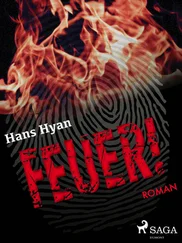Just when he felt he would have to scream to relieve the pressure in his chest, there was Aneeka, lighting up the screen of the phone:
HAVE PASSPORT AND TICKET. FLIGHT IN THREE HOURS. RUSHING TO AIRPORT.
Turn off your CAPS LOCK, Shouty.
DON’T THINK YOU CAN START BOSSING ME AROUND, IDIOT.
Love you too.
Until soon, Senti.
Until soon, Mental.
He ordered a coffee, some bread. Perhaps when she arrived there’d be time to go look for the ruined house in the wild garden. A bearded, broad-shouldered man appeared in the doorway, his shadow extending deep into the café. Someone asking the waiter for directions. There were houses and gardens enough in London. The British consulate, the airport: that was all he wanted to see of Istanbul. Tomorrow at this time he’d be back in Preston Road. Inshallah.
His phone buzzed again, making him smile. Aneeka the Anxious. He raised himself off the seat, pulled the phone out of his back pocket, read:
You’re a dead man, my little warrior.
||||||||||||||||||
The man knelt in the sand, motionless except for the movement of his lips.
“Find something to gag him with,” said Abu Raees, the head of the Raqqa sound studio. “We don’t want that interference.”
Parvaiz ran back to the SUV in which he and Abu Raees had only minutes ago driven up to this scene out of a movie. Blue winter sky, a day so still not a single speck of sand moved in the desert landscape, no sign of life other than the kneeling man and the executioner sitting a few feet away, turning his sword this way and that so it caught the sun and became a dancing beam of light. Parvaiz opened the passenger door of the SUV and ducked inside. Hidden from view, he rested his head against the leather interior, tried to stop the shaking of his hands that had started the moment they stepped out of the SUV and he understood what was going to happen.
It was late March. He had survived the tedium and affront of Shariah classes, in which he learned that everyone he loved was either an infidel or an apostate, and that both categories deserved to die, and that it was against Allah’s will to wear T-shirts with slogans on them, or to give anyone the wrong directions, or to allow your women to sit down in public. He had survived military training, during which he learned that fear can drive your body to impossible feats, and that the men of his father’s generation who fought jihad in Bosnia, Chechnya, Kashmir, all went home to their families for the winter months. That piece of information had made him blubber into his pillow at night, not because it made him understand that his father had never loved him (though he did understand that) but because he finally saw that he was his father’s son in his abandonment of a family who had always deserved better than him. He had survived all that, and even though he knew by then the nature of the joyless, heartless, unforgiving hellhole for which he’d left his life, he believed he had survived the worst. The media wing had accepted him, trained him (and he had found pleasure in the learning), and now he had a position at the Raqqa sound studio and had taken the Scotsman’s place in the villa (the marriage bureau had found him a wife, but the American’s French girl had backed out of coming — the only piece of news that had actually made Parvaiz feel happy in the last three months). In his two weeks at the sound studio he’d been assigned mainly low-level tasks — editing distortions out of speeches, cataloging Abu Raees’s haphazard sound files — but today Abu Raees, a man who was known to prefer working alone, had asked him to come along and help set up an important field recording. He had felt proud, even though after Farooq — whom he hadn’t seen since that first day in Raqqa — he’d learned to mistrust his need for an approving father figure.
He heard Abu Raees calling the name he’d learned to answer to, and pulled a cloth out of the glove compartment. The sand shifted beneath his feet as he trudged back, hands fisted in pockets. The executioner lifted his blade, brought it down onto the kneeling man’s neck. Parvaiz bent over, stomach emptying. When he straightened, wiping the back of his hand across his mouth, the executioner was lifting the blade again, bringing it down to within a few inches of the man’s neck again. Abu Raees, headphones on, was checking the DAT levels. The executioner pointed off to the side and Abu Raees walked in the direction he was gesturing, just a few feet away. They were anticipating the trajectory of the man’s head when it left his shoulders. Working out where to place the mics.
He reached the kneeling man, bent down to place the cloth in his mouth. The man’s lips still moving, the words now discernible. He was praying. Ayat al-Kursi, the prayer Parvaiz’s grandmother had taught him to say in times of distress. The prayer he too had been whispering on the walk from the SUV to the kneeling man. The man looked up. Parvaiz wouldn’t remember anything of the man’s face afterward, only his expressive eyes.
“Come here, listen to this,” Abu Raees said, holding out his headphones. Parvaiz reached for them, dropped them. “What’s wrong with your hands?”
He shook his head, picked up the headphones again, and managed to fit them onto his head. Abu Raees, eyes narrowed, handed him a mic. What he heard through the headphones was the sound of the mic juddering in his hand. The tremors had moved all the way up to his elbow.
“I can’t stop it,” he said. And then, “I’m not feeling so well.”
“Go and lie down in the SUV,” Abu Raees said, turning away.
He did as commanded, lay sealed up in the back of the car, imagining it again and again: the blade cutting through air, cutting through flesh and bone, the body slumping, the head bouncing on the sand, rolling to a stop. The eyes still open, not afraid but accusing.
How long does it take to cut off a man’s head?
When Abu Raees finally returned to the car, Parvaiz said, “I don’t know why Allah made that happen. My will was in one direction, but my hands couldn’t follow. I must have failed Him in some way.”
Abu Raees gave him a long, considered look as he invoked the will of Allah as explanation for his failure. A lapse in loyalty could see a man stripped of his privileges and sent to dig trenches on the outskirts of town, where he would be an easy target for aerial bombing. “You should stay up all night praying for forgiveness,” Abu Raees said.
“I will,” he answered. It was unclear if the taciturn Iraqi believed him or just didn’t want to do without such an efficient worker. Impossible here to know who was a true believer and who was playing along for any of a host of reasons, from terror to avarice. The price of letting your mask slip was far too high for anyone to risk it.
For days and days after that, he worked in the studio on sound effects of beheadings, crucifixions, whipping. This was both a test and a punishment. In the studio, he had control of himself. Abstracting himself to that place where nothing but getting the sound right mattered. The fascination of discovering the different pitch and timbre of a nail through flesh, a blade through flesh. Some men were men in their dying screams, some were animals. He, Mohammad bin Bagram, now numbered himself among the animals.
And that’s why, although he’d been given his own phone since joining the studio and could finally speak to his sister without a minder standing within earshot, he hadn’t called her. Just daily chat messages to let her know he was alive, then he’d log off. Conversation had become unimaginable. What have you been up to? How was your day? How are you doing?
But then, in the early days of April, he logged onto Skype to quickly send his daily message and there was one from her: Call me. I’m working on a plan to get you home.
Читать дальше












